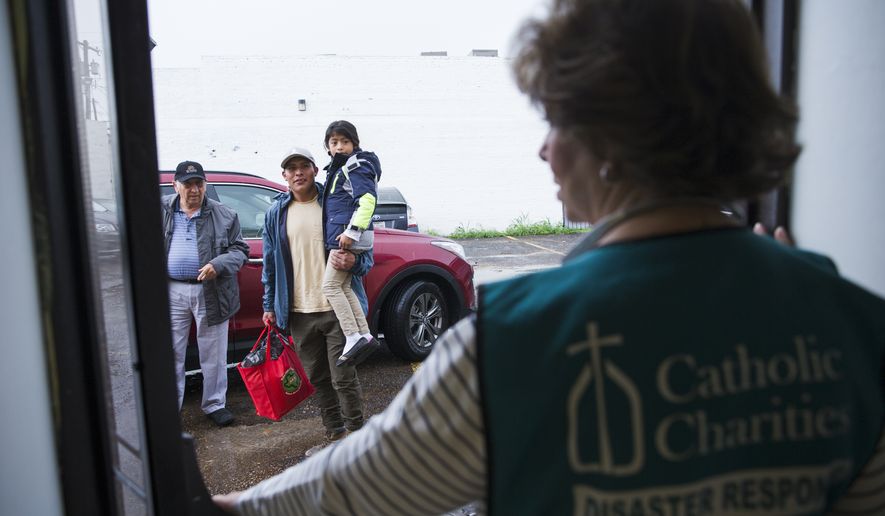Most Americans disapprove strongly of separating parents who cross the southern border illegally from their children, but they also say the issue won’t sway their vote one way or the other in the midterm elections.
A CBS News/YouGov tracking poll released Sunday found that 53 percent of U.S. adults surveyed said that what happens to families detained at the border is “not changing” the way they vote.
Only Democrats said the issue would change their vote, with 53 percent saying it would make them more likely to vote Democratic, while 49 percent of Republicans and 57 percent of independents said it would have no impact.
The results indicate that voters remain sharply divided and firmly entrenched on issues related to immigration, and that the recent pitched debate and feverish news coverage surrounding family separation haven’t changed matters.
While 75 percent of Democrats said it was a high priority to reunite families, only 23 percent of Republicans and 16 percent of those who identified themselves as strong supporters of President Trump agreed.
Fully 53 percent said they opposed “strongly” separating children from their parents after crossing the border illegally, but again the partisan split was enormous, encompassing 81 percent of Democrats and just 21 percent of Republicans.
A whopping 77 percent called the separation issue “a problem that needed to be solved.” Mr. Trump signed Wednesday an executive order to keep parents and children detained together instead of separately, a move Democrats denounced as insufficient.
A majority of voters — 58 percent — said they disapproved of Mr. Trump’s handling of the parent-child separation at the border, including 88 percent of Democrats. But, on the other side, 81 percent of Republicans approved of his performance.
Party affiliation was also predictive of how people viewed border-crossers. Asked whether they were hard-working people seeking jobs, 60 percent of Democrats agreed, while most Republicans and independents said some were and some weren’t.
Asked whether those crossing the border were criminals and gang members, 61 percent of Democrats said they were not, while most Republicans and independents agreed that some were and some weren’t.
At the end of the day, most Republicans and independents said the separation controversy didn’t affect their opinion of Mr. Trump.
While 49 percent of Democrats said that it changed their opinion of Mr. Trump for the worse — though his standing among Democrats has been at historic lows for his entire presidency — 62 percent of independents and 72 percent of Republicans said their view did not change.
The Battleground Tracker National Poll of 2,063 U.S. adults was taken June 21-22 and has an error margin of 2.6 percentage points.
In three key states at the center of the immigration debate — Arizona, Florida and Texas — the results were largely the same.
“As a midterm election issue, for about half of voters in Arizona, Florida and Texas they say the matter of separating parents and children at the border will not change the way they’re thinking of voting this November,” said the CBS analysis.
“On balance, more say the issue will make them more likely to consider voting Democratic this year than Republican, but it’s largely Democrats who say that,” said the analysis. “Almost no partisans say they will consider voting for the opposing party because of this issue.”
Most voters in those states said they care “a lot” or “some” about the family separation issue, but they also pinned the blame at least in part on parents who bring their children over the border illegally.
Nearly half of voters polled in each state said the parents were “mostly to blame” for families being separated, with another 24-25 percent saying parents are “partly to blame, but not entirely.” Between 26 percent and 29 percent said that the parents were “not to blame” for being detained separately from their children.
Nationally, 67 percent of adults said a candidate “must” agree with them on immigration to get their vote.
• Valerie Richardson can be reached at vrichardson@washingtontimes.com.




Please read our comment policy before commenting.